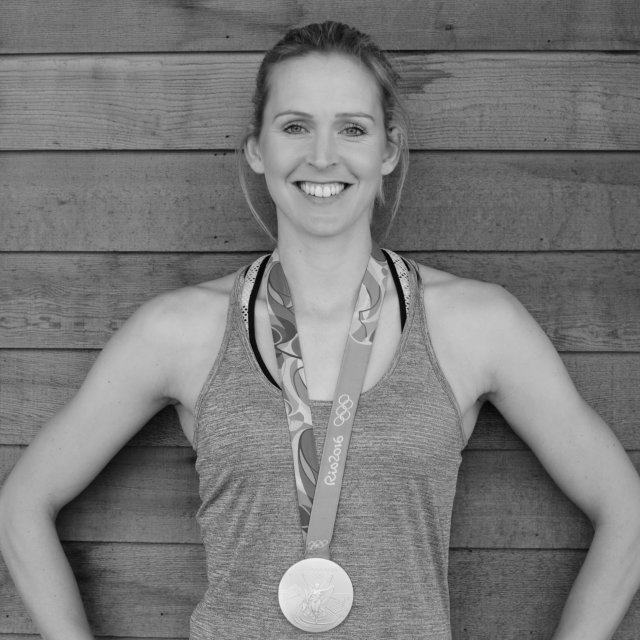Team GB rower and ambassador for The Sleep Charity, Victoria Thornley, has shared an insider’s insight into the role that sleep will play in getting team ready for Tokyo 2021, following the impact of last year’s postponement on the team’s health and wellbeing.
Thornley, who was selected for her third Olympic games this year in the Women’s Single Scull, was a member of the team that finished 5th in the Women’s Eight at the London Games in 2012 and won a silver medal partnered with Katherine Grainger in the Women’s Double Sculls five years ago in Rio.
The Welsh-born athlete, who has also won medals at World and European Championships level, supports The Sleep Charity’s work to help people improve sleep and provide training to personnel in the health, social and corporate sectors.
Thornley’s attentions are now firmly fixed on this year’s Games, as the athletes enter their final weeks of preparation.
Following several months of uncertainly, the Opening Ceremony for the Tokyo Hames is scheduled for 23 July, with more than 11,000 competitors from 206 nations expected to travel.
Thornley explained: “We have had to significantly adapt our training, and the flow of our training, to accommodate an additional year.
“As athletes, our schedules work around the Olympics. We peak for the games every four years, so we have had to adapt to the fact that we are now going for a fifth year.
“Four years is a long time, and we’re understandably tired mentally and physically at the end of it, so asking your body to go for another year on top of that is something we’ve all had to be mindful of.”
Thornley says that sleep has and will continue to form a vital part of the athletic recovery process.
“Sleep is a massive pillar of wellbeing and general health,” she continued, “we don’t talk about it as much as we should when discuss health and wellness, especially for athletes.
“We talk about nutrition and exercise, but sleep is actually such an important aspect of those pillars and can affect our food cravings and performance.”
Team GB Rower Victoria Thornley’s elite athlete tips for getting a great night’s sleep:
- Experiment with your routine
“I try to keep to a routine as much as possible each night – and bodies do crave routine – but it’s important to experiment and find the routine that’s best for you. Try a hot bath and a cold bath, a cold shower and a hot shower, and see which one works best for you. Everybody is different and it’s important to find a regime that works for you.”
- Manage your body’s temperature
“Temperature is absolutely key, and certainly a key consideration for me. When I work out or train later in the evenings, then that naturally has an impact on body temperature, and it can take some time for that to return to normal levels. If I do have to train close to bedtime, then I will have a cold shower and ensure my room is cool in order to get my internal temperature to where it needs to be.”
- Apps not devices
“Most people already understand that it’s important to cut down on using devices in the bedroom when they’re getting ready to go to sleep – and I certainly subscribe to this belief – but I have had some good results from using some of the sleep and wellness apps, like Headspace, that are available. Sleep stories that you can listen to without looking at a screen have helped me to nod off.”
- Cut out refined sugars
“Nutrition and eating the right things is naturally a big part my day-to-day life and cutting out refined sugars forms a major part of that. This also has a significant impact and sleep and, because I don’t have refined sugars that often, I definitely feel the impact at night-time when I’ve indulged – although sometimes it’s no bad thing allowing yourself the odd treat!”
- Don’t let the stress get to you.
“The stress of elite sport can occupy your mind and, even though we have our own strategies for managing this pressure, it can be really helpful to switch off and spend some quality time with friends and family and relax your focus a little before heading off to bed. Similarly, I try not to stress about not getting to sleep. The more you worry about it, the harder you’ll find it to nod off.”
Deputy CEO of The Sleep Charity, Lisa Artis, added: “Sleep and exercise are vital columns of wellbeing for everybody, especially for professional athletes.
“Recovery occurs when we sleep so it is really important that everyone, from Team GB to Sunday league footballers, are getting the sleep and the downtime that they need when taking part in intensive sports.
“Routine is the most important thing when looking at how sleep affects performance, and everyone will have a different routine.
“What works for one person may not work for another, it’s all about finding what works for you and your training schedule.”
Read more – Performance consultant Sarah Gilchrist discusses the role of sleep as a performance enhancer – https://thesleepcharity.org.uk/sleep-the-ultimate-performance-enhancer/

